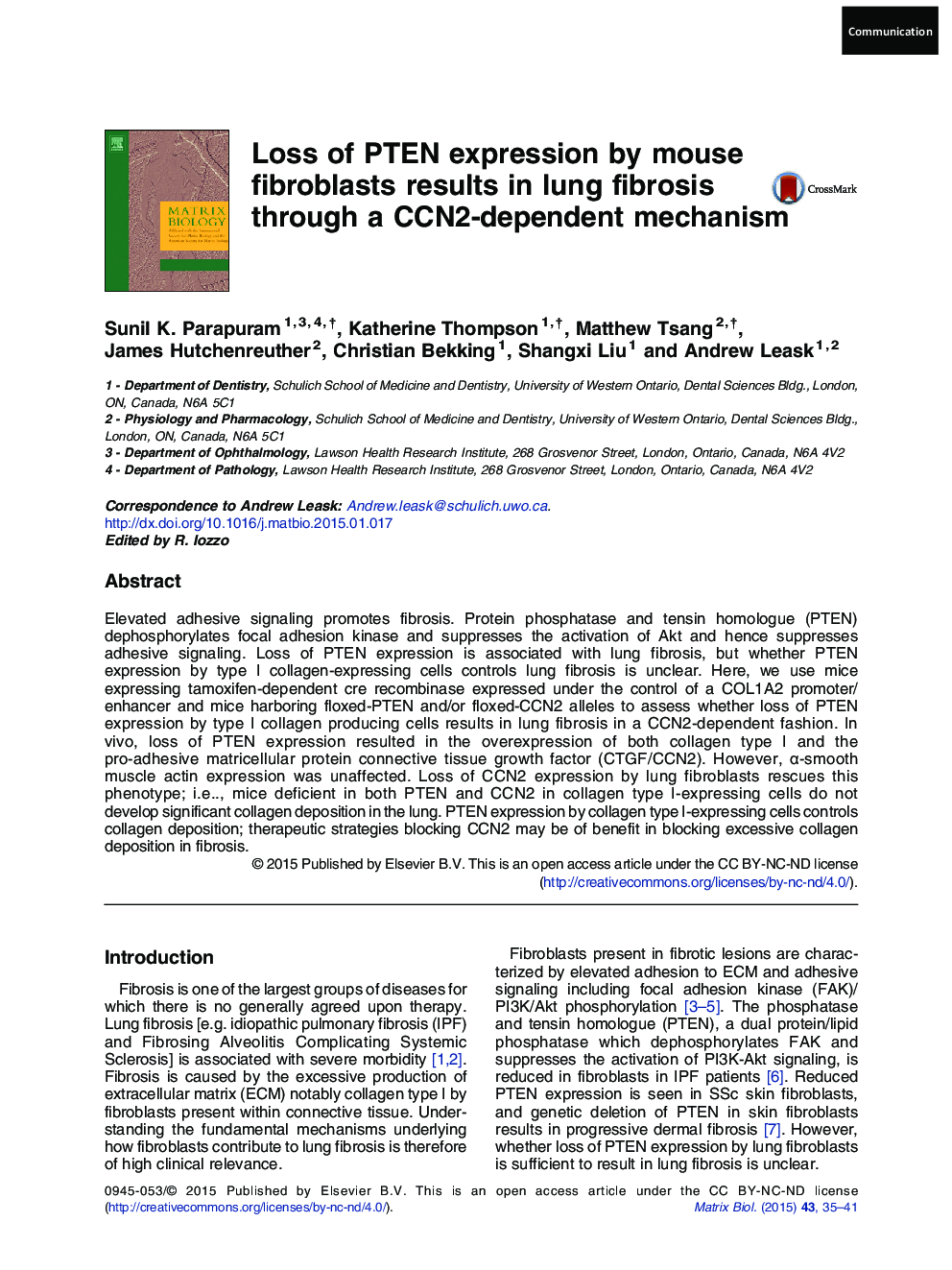| Article ID | Journal | Published Year | Pages | File Type |
|---|---|---|---|---|
| 8455220 | Matrix Biology | 2015 | 7 Pages |
Abstract
Elevated adhesive signaling promotes fibrosis. Protein phosphatase and tensin homologue (PTEN) dephosphorylates focal adhesion kinase and suppresses the activation of Akt and hence suppresses adhesive signaling. Loss of PTEN expression is associated with lung fibrosis, but whether PTEN expression by type I collagen-expressing cells controls lung fibrosis is unclear. Here, we use mice expressing tamoxifen-dependent cre recombinase expressed under the control of a COL1A2 promoter/enhancer and mice harboring floxed-PTEN and/or floxed-CCN2 alleles to assess whether loss of PTEN expression by type I collagen producing cells results in lung fibrosis in a CCN2-dependent fashion. In vivo, loss of PTEN expression resulted in the overexpression of both collagen type I and the pro-adhesive matricellular protein connective tissue growth factor (CTGF/CCN2). However, α-smooth muscle actin expression was unaffected. Loss of CCN2 expression by lung fibroblasts rescues this phenotype; i.e.., mice deficient in both PTEN and CCN2 in collagen type I-expressing cells do not develop significant collagen deposition in the lung. PTEN expression by collagen type I-expressing cells controls collagen deposition; therapeutic strategies blocking CCN2 may be of benefit in blocking excessive collagen deposition in fibrosis.
Related Topics
Life Sciences
Biochemistry, Genetics and Molecular Biology
Cancer Research
Authors
Sunil K. Parapuram, Katherine Thompson, Matthew Tsang, James Hutchenreuther, Christian Bekking, Shangxi Liu, Andrew Leask,
